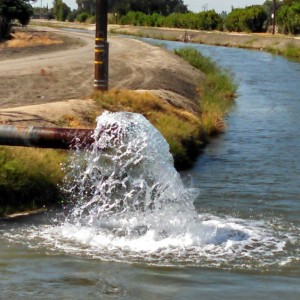The Stream, July 28: Coastal Flooding Increasing in United States
Flooding in many coastal areas of the United States has increased since the 1950s, with some places now experiencing flooding once every three months compared to once every one to five years in the past, according to a new study released by the National Oceanic and Atmospheric Administration, Reuters reported. Flood frequency has increased at 41 coastal locations, and the rate of increase is growing at 28 locations.
Drought
Inefficient water use, insufficient water storage and water pollution are combining with growing demand and drought to create water scarcity problems in Lebanon, Inter Press Service reported. For example, agriculture uses 60 percent of the country’s water but contributes less than 6 percent of its gross domestic product.
A drought in China has left 300,000 people without drinking water and damaged 16.4 million hectares of pasture in Inner Mongolia, while another drought in Henan province has damaged 900,000 hectares of crops, Reuters reported, citing the Xinhua news agency. The drought is the worst in 40 years.
Food Production
Recurring droughts and increasing water scarcity in China should push the country to import more food, according to the head of China’s environment impact assessment office, Reuters reported. Water supplies could then be used to encourage more energy production, he said.
A shift in Egypt’s hierarchy of water users that would place aquaculture operations ahead of other agriculture users could benefit both, according to proponents of the practice, Inter Press Service reported. Egypt’s burgeoning fish farming industry currently uses drainage water from land farms, which can hold pesticides and other pollutants. If the flow of water was reversed, however, crops could benefit from using water from fish farms that contains natural fertilizers.
A news correspondent for Circle of Blue based out of Hawaii. She writes The Stream, Circle of Blue’s daily digest of international water news trends. Her interests include food security, ecology and the Great Lakes.
Contact Codi Kozacek







Leave a Reply
Want to join the discussion?Feel free to contribute!